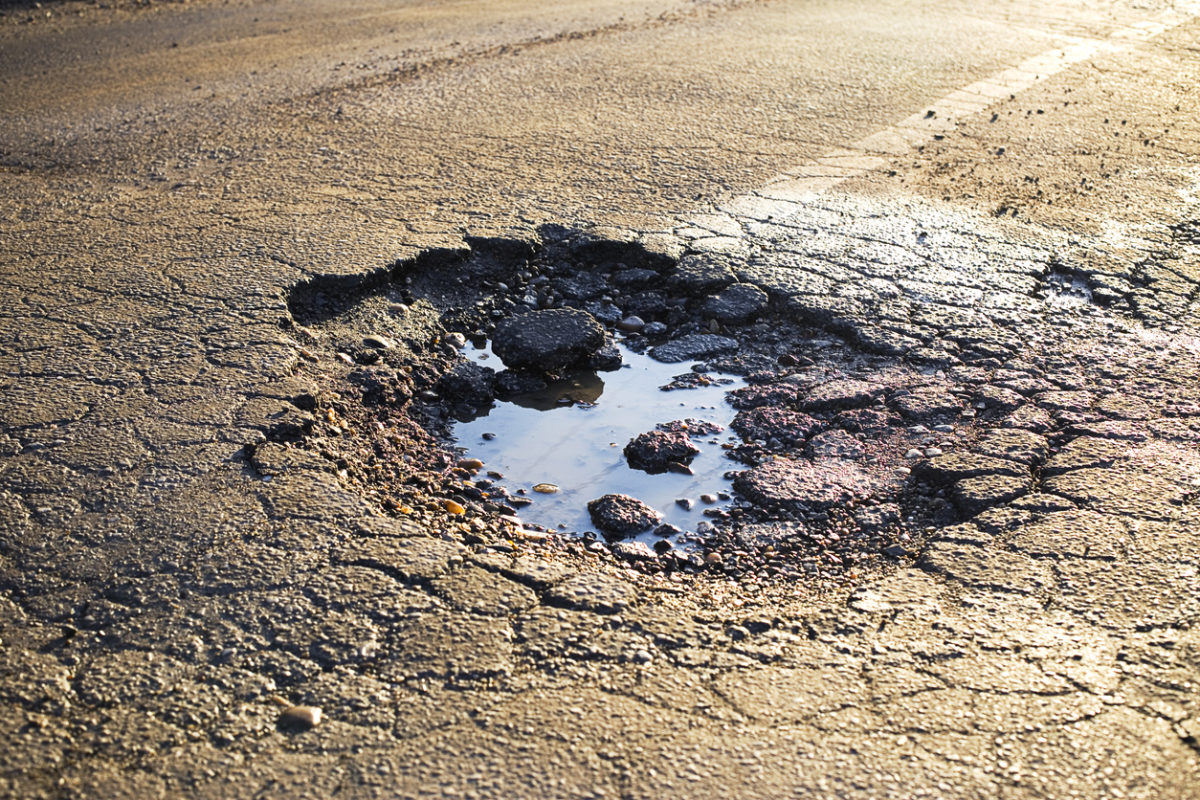THIS SHOULD SPAWN SOME REAL ROAD RAGE …
For years, this website has said that Palmetto State taxpayers were providing the scandal-scarred S.C. Department of Transportation (SCDOT) with more than enough money to do its job.
In fact, we reiterated this point in our latest article chronicling ongoing efforts to raise the state’s gas tax.
Like the rest of state government, SCDOT doesn’t have a revenue problem, we argued, it has a spending problem. And a borrowing problem. And a corruption problem.
We’re apparently not the only ones reaching that conclusion …
Tim Smith, a reporter with The Greenville News, recently published a lengthy exposé on this subject.
Smith’s excellent report begins with this summation …
One out of every four dollars that goes into the state Department of Transportation’s coffers has been spent on debt or shifted to other agencies, and much of the remainder has been designated for uses other than resurfacing or rehabilitating the state’s deteriorating roads.
Wait … what?
Are we reading this right? Aren’t mainstream media outlets supposed to reflexively regurgitate the liberal spin that “higher taxes = better roads?”
(All evidence to the contrary).
Yes they are … but they don’t always play along.
Smith’s report makes it abundantly clear that raising the gas tax would result in more money flowing into a broken system that is doing a piss poor job of prioritizing resources (something we’ve been screaming for years).
Here’s the key passage of his report …
Most of the agency’s money comes from fuel taxes, either from the state’s gas and diesel taxes or federal grants derived from the federal fuel taxes.
But much of the revenue is not spent on roads.
For instance, out of $601 million forecast for this year’s gas tax revenue, the agency will net $463 million because of a series of deductions mandated by law. They include almost $75 million for county transportation committees, nearly $18 million for the state Department of Health and Environmental Control, close to $1 million for the state Department of Agriculture, $3.7 million for the Department of Natural Resources watercraft fund and almost $15 million for an international fuel tax agreement, according to DOT.
Of $841 million in non-federal revenue, according to DOT, the agency was required by law this year to spend $88 million for a port access road, almost $80 million for the State Infrastructure Bank, $8 million for the Cross Island Toll Road operations and $128 million for non-federal aid for secondary roads. The Infrastructure Bank is a separate agency that finances major transportation projects in the state using bonds.
Out of that same pot, according to the agency, DOT also will spend $64 million for debt service, $270 million for routine maintenance, including employee benefits; $90 million for engineering and project management; $11 million for planning and mass transit; $27 million for general administration, including benefits; $8 million for facility repairs; and $133 million for federal match funds.
Yeah … and this is the pot liberal lawmakers want to pump $1.8 billion into over the next five years? And between $600-800 million annually after that?
Amazing …
To be clear: Roads and bridges are core functions of government … but not the way South Carolina government does them. In the Palmetto State, it’s all about crony capitalism – influential special interests and self-interested politicians making decisions benefitting them, not our state’s citizens and taxpayers.
Enough is enough …
As we’ve previously pointed out, GOP lawmakers have more than doubled SCDOT’s base budget over the last seven years. On top of that, they’ve approved hundreds of millions of dollars in new (and likely unconstitutional) borrowing for transportation projects.
Has this mountain of money “fixed our roads?” No. Not even close.
Things are arguably worse than ever – and lawmakers have utterly failed to rein in rampant corruption and incompetence at the agency.
Smith’s article exposes exactly why throwing more money into this system will do nothing but increase the cost of our failing infrastructure – and why state lawmakers should reject any tax hike proposal not accompanied by dollar-for-dollar tax relief and a long-overdue de-politicization of our transportation bureaucracy.
Banner via iStock
